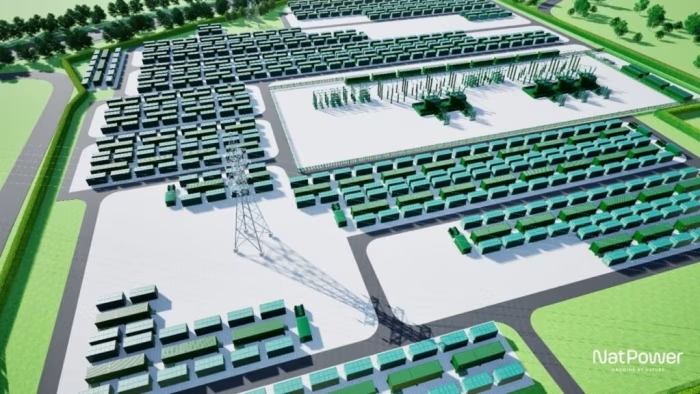Teesside Freeport has secured a landmark renewable energy project, with NatPower announcing plans to invest £1bn in one of the UK’s largest ever battery energy storage systems (BESS).
The Teesside GigaPark will be developed on a 32-acre site at Wilton International in Redcar, owned by Sembcorp Energy UK. Once completed, it will deliver an initial storage capacity of at least four gigawatt hours, with the potential to double to eight gigawatt hours in later phases. The privately financed project aims to connect to the national grid by 2028, subject to reforms set by the National Energy System Operator.
Battery storage systems play a crucial role in balancing the grid, capturing surplus electricity generated during periods of high renewable output and releasing it back when demand peaks or when production is low. NatPower intends for the Teesside GigaPark to integrate with maritime electrification infrastructure and store power generated from offshore wind and other renewable sources.
Stefano Sommadossi, CEO of NatPower UK, said Teesside’s established infrastructure and industrial base made it an ideal location. “This mix of demand ensures resilience and supports Teesside’s dual role as both a digital and maritime hub,” he commented. NatPower is also exploring opportunities with potential off-takers in sectors such as logistics, shipping, data centres and clean energy manufacturing.
The scale of the scheme would mark a step change for the UK’s energy landscape. The country’s largest operational battery system today is a 600MWh facility in Thurrock, connected to the grid in 2023. By comparison, Teesside’s proposed GigaPark would offer storage on a scale not yet delivered in Britain.
However, the announcement comes at a time of mounting pressure over land use across Teesside Freeport. Ministers recently designated Teesworks, a former steelworks site outside Middlesbrough, as the UK’s second artificial intelligence growth zone. Plans for a 464,000 square metre data centre campus have already secured outline planning approval, with more detailed applications expected to follow.
That designation has sparked concerns for other projects vying for the same land. In particular, BP’s proposed blue hydrogen and carbon capture plant faces uncertainty after Teesworks’ backers argued the development would clash with space required for the data centre, describing the AI-focused project as of “critical national importance”. BP has countered that both schemes could coexist, but tensions remain unresolved.
As the government reviews its special economic zone programme under its wider industrial strategy, the Teesside GigaPark highlights both the potential and the pressures facing the UK’s largest freeport: a region balancing energy transition ambitions, digital infrastructure growth, and competing claims over some of its most strategic land.
Building, Design & Construction Magazine | The Choice of Industry Professionals





